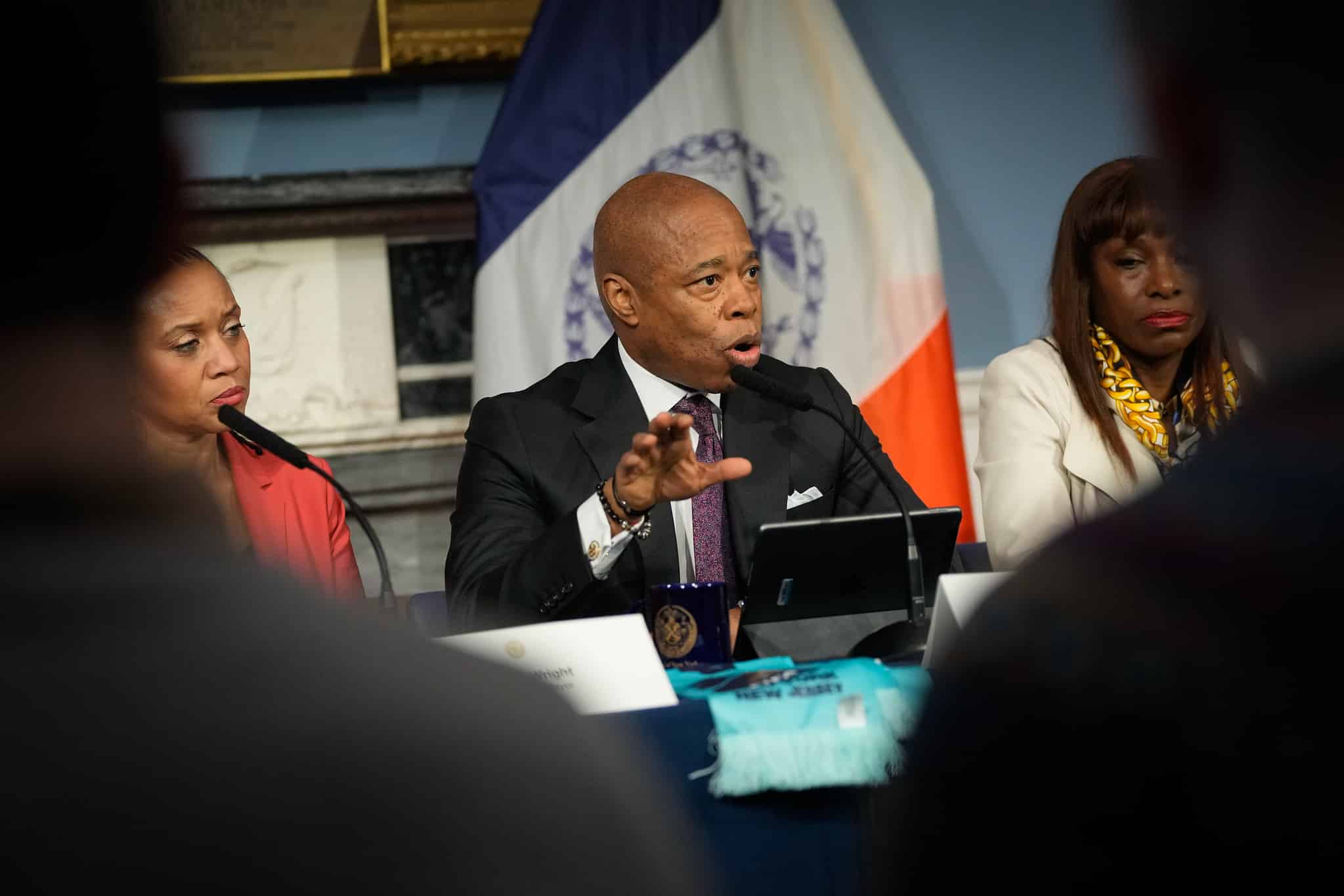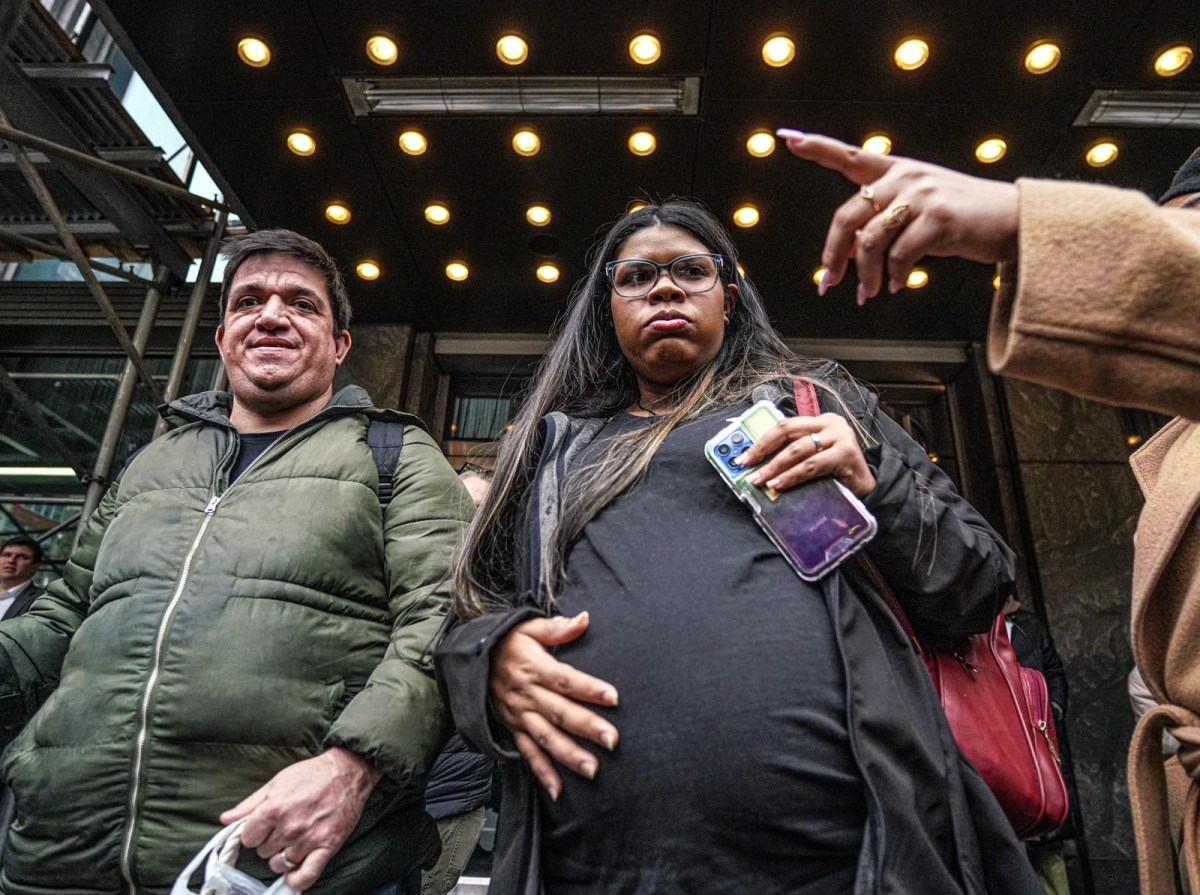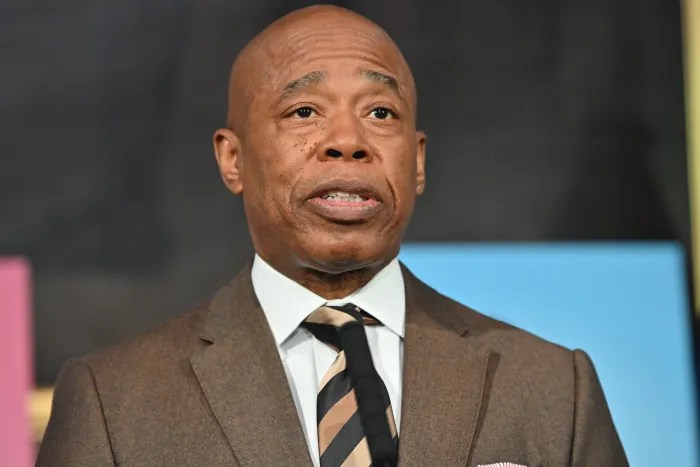Mayor Eric Adams on Tuesday defended his new pilot program to give migrant families prepaid debit cards for purchasing food after the rapper 50 Cent blasted the move over the weekend.
The $53 million pilot program will see 500 migrant families staying in city-funded hotel shelters given prepaid debit cards with funds to purchase food and baby supplies upon their arrival at the Roosevelt Hotel intake center, according to City Hall. It will replace meal kits distributed to those families at their shelters.
The cards, which will be administered by the financial services company MoCaFi, will be filled with roughly $12.52 per person, per day — and can only be used at bodegas, grocery stores and supermarkets, the mayor’s Chief of Staff Camille Joseph Varlack said.
The families could potentially get the cards refilled after 28 days, according to mayoral spokesperson Kayla Mamelak Altus.
Adams, during his weekly off-topic news conference on Feb. 5, defended the pilot after 50 Cent railed against it in a since-deleted Saturday Instagram post, which followed a report from New York Post revealing the program on Friday.
The rapper said he did not understand how the pilot would work and asked the mayor to “call my phone,” while declaring, in his view, that maybe Donald Trump — the former president and GOP frontrunner against President Biden in this year’s election — “is the answer.”
Mayor Adams said the pilot is testing a more cost-efficient way to feed the tens of thousands of newcomers living in city-funded shelters. It will also help to cut down on food waste and let migrants purchase what they want to eat instead of the city choosing for them.
“We need to dispel the rumor that we gave American Express Cards to everyone, because that is just not true,” Adams told reporters. “We told everyone we have to find a cheaper, more efficient way to distribute food.”

Food waste has become a common problem at many migrant shelters, according to press reports. One controversial shelter provider, DocGo, recorded over 70,000 meals at its shelters as “wasted” last fall, the New York Times reported in December.
When it comes to 50 Cent, Adams told the rapper to “hit him up,” so he could explain the program.
“I would love to explain it to him so he can go out and do another [post] of saying ‘you know what, Eric is just a smart manager and now we understand why he was elected by the people of the city of New York to be the mayor,’” Adams said. “He may even write a song about me.”
50 Cent later posted that he spoke to the mayor, who “broke down why this pilot program was put in place. He appeared to be on point, and on top of things.”
Varlack said the prepaid card model could save the city approximately $600,000 a month, amounting to $7.2 million a year. The plan eliminates the food delivery costs, she said, which made up a sizable portion of the expense.
Adams said the program also aims to channel city dollars, that are currently going to private food vendors, back into the local economy.
“These cards are going to go to bodegas, grocery stores, supermarkets, local businesses are going to benefit,” he said.
If the pilot is successful, the mayor said, it will expand to other migrant shelters.
Adams said the move is part of his administration’s concerted effort to cut migrant spending by 20%, which he insists was essential in allowing it to reverse some of its deep budget cuts to city services last month.
City Council Member Gale Brewer, who has expressed many concerns about the food being provided to migrants, said the debit cards sound like a better alternative for feeding new arrivals. But she raised concerns about whether the new program would take place at the same time as previously signed food vendor contracts — with companies like DocGo — or replace them altogether.
“To me, it might be better than DocGo because [migrants] don’t like the food and they don’t eat the food,” Brewer said. “One of my questions is, ‘are they double dipping?’ … They shouldn’t be paying twice.”
Read more: 3 Mets will see bulk of DH at-bats in 2024


































